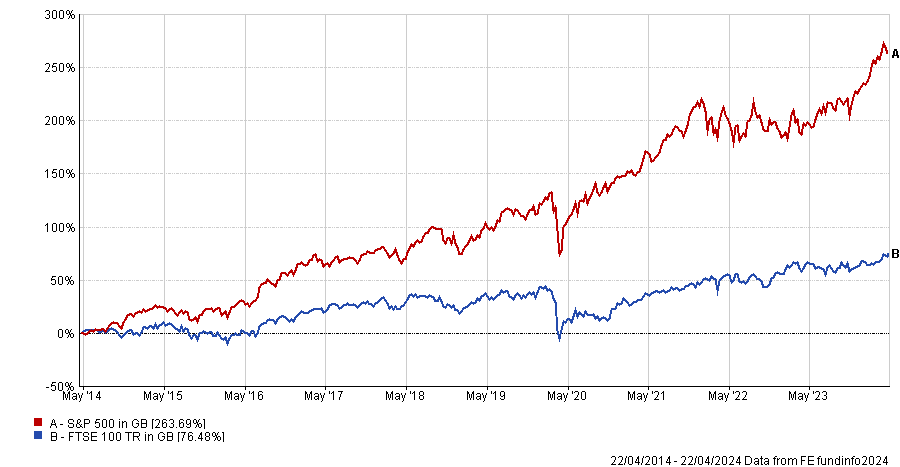The FTSE 100 reached a record high at yesterday’s market close of 8,023.87, surpassing its previous zenith of 8,014.31 on 20 February 2023. It gained 1.62% on Monday 22 April 2024, up from last Friday’s close of 7,895.85.
David Cumming, head of UK equities at Newton Investment Management, believes that the domestic equity market has further to run and is on the verge of “a new dawn”.
“The new market high has been a long time coming but despite the global uncertainty this has the potential for being a new dawn, rather than a short-term blip. The UK is cheap, relative to other markets, while relative trends in commodity prices and interest rates now favour the UK’s company mix as the global tech rally fades,” he said.
“For the UK consumer, in the near term things are looking up – with recent tax cuts, lower inflation figures and rising earnings. Retailers such as Tesco, with exposure to these trends, were notable upward gainers yesterday. The recent rise in bid activity is a further positive valuation signal for the FTSE.”
Currency weakness has played a part in the UK stock market’s performance, boosting sterling-denominated profits for companies with substantial overseas revenues.
If the Bank of England cuts rates before the US Federal Reserve, monetary policy divergence will probably push the pound even lower, said Lindsay James, investment strategist at Quilter Investors.
“With economic growth still lagging many of its G7 peers, the UK has turned this to its strength in the fight against inflation, which last month fell below that of the US and saw governor Andrew Bailey announce that this data shows the UK is ‘pretty much on track’ with the central bank’s forecasts,” she said.
“This has led investors to anticipate that rate cuts could arrive in the UK well before the US, weakening sterling by just over 3% against the dollar so far this year, and continuing a long running trend that has seen the pound decline more than 25% against the dollar in the past decade, a period over which the FTSE 100 has delivered only around a quarter of the returns generated by the S&P 500.”
Performance of FTSE 100 vs S&P 500 over 10yrs

Source: FE Analytics
James concluded that sterling weakness could propel the FTSE 100 to continue its upwards trajectory. “With the bulk of FTSE 100 company earnings generated internationally, this currency weakening conversely benefits UK-based investors as those earnings have risen in sterling terms, offering some relief in the story of long-term underperformance of the home market relative to Europe and the US,” she explained.





